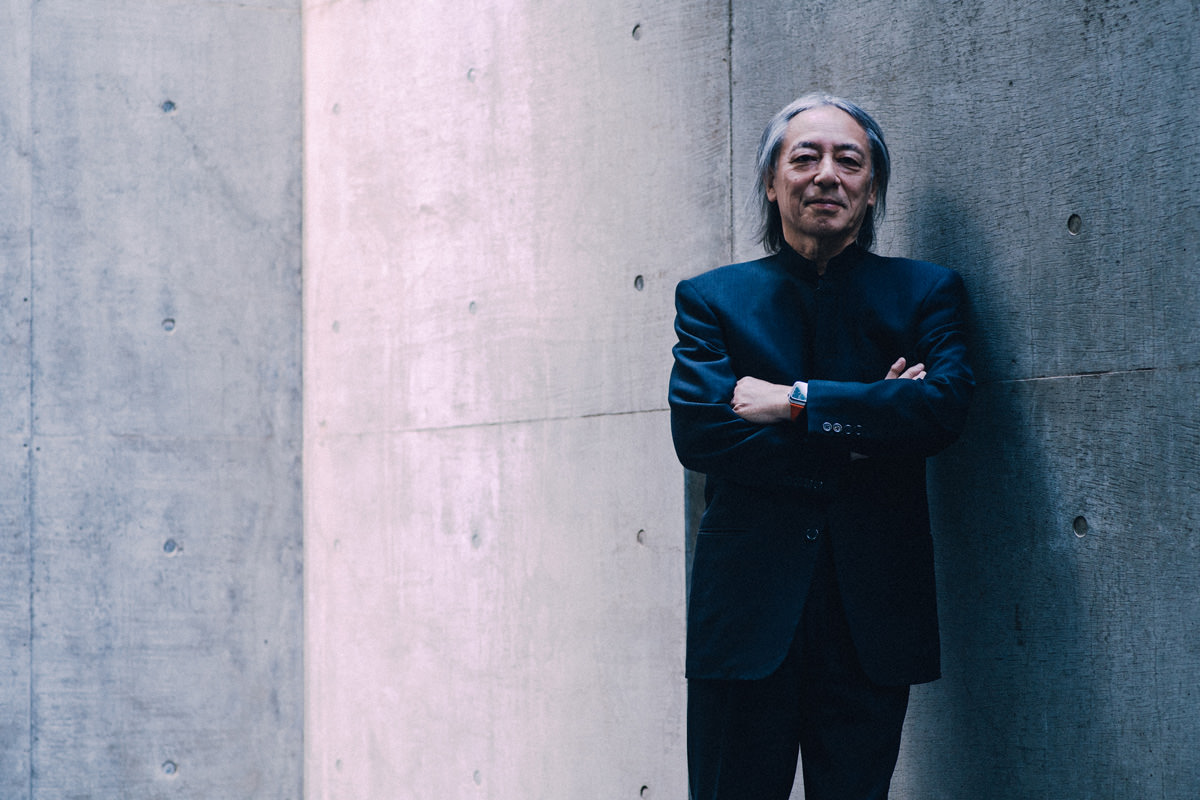CORPORATE
MESSAGE

In 2021, KAJIMOTO marked the 70th anniversary of its founding, living through the unprecedented, turbulent time of the COVID-19 pandemic.
Back in 2009, the company was renamed “KAJIMOTO” from “Kajimoto Concert Management”, the name originally used for fifty-eight years. This is because the part “Concert Management” started to seem to me to be somewhat rigid, as my goal is crossing genres and national borders to cultivate “art of the future” filled with surprises and discoveries. It goes without saying that the core of our projects is still classical music as it had always been so.
The logo of KAJIMOTO created then by the art director Kashiwa Sato can be laid out either horizontally or vertically at will like toy building blocks. I wish each of those who work for the company will hone such a free and flexible mindset.
Currently based in Tokyo, Paris and Beijing, KAJIMOTO consists of staff members from more than ten different countries. From a variety of linguistic and cultural backgrounds, they harmonize and sometimes argue with each other creating interesting chemistries.
Originally, ever since the very beginning, our former president had encouraged the staff members to dare things with a free spirit. Of course, this corporate culture has taken over until today like an invisible DNA. However, if I ask myself what brought a major turning point to the company to take the course of today, it is the words that Mr. Boulez said to me during “Pierre Boulez Festival” we held in Tokyo in 1995:
“Masa, if we don’t take any action, classical music might go extinct. It has been too standardized and fixed without any innovation. Music must be presented in more diverse ways. Unless we open up its possibilities, classical music will become a relic of the past.”
The remark of this fighter and giant star of the classical music world, aged 70 at the time, really went to my heart. Since then, I kept asking myself if we should accept things as they were. Eager to cut a new path with novel ideas, I finally opened an office in Paris in 2001. The decision enabled us to have different perspectives on the music, which brought to fruition some operatic projects co-produced with the Théâtre du Châtelet such as “My Way of Life”, a spectacle based on Toru Takemitsu’s music, the double bill of Schoenberg’s “Erwartung (Expectation)” and Poulenc’s “La voix humaine (The Human Voice)” both sung alone by the great soprano Jessye Norman as well as Rameau’s “Les Paladins”, a baroque opera presented with computer graphics and hip-hop.
2001 was also the year when I got to know “La Folle Journée” (LFJ), an unprecedented and daring festival held in France that KAJIMOTO introduced to Japan a few years later. Breaking conventions of the classical music world, this event still continues in Tokyo, though it has been interrupted temporarily because of the pandemic. It is always a great pleasure for me to look at so many people gathering together to enjoy this revolutionary festival full of new possibilities.
In recent years, our headquarters in Tokyo and office in Beijing have collaborated closely with each other to increase Japanese artists’ concerts in China. Also, we have actively organized European orchestras’ tours in Asia including Japan.
A new project we have just started to work on is the production of a new opera by the UK-based Japanese composer Dai Fujikura. This has been awarded a grant as one of “The Projects to Nurture Creators and Artists” from the Grants for Artistic Activity Infrastructure Reinforcement Program (which was newly established at the Japan Arts Council by the Japanese government’s Cultural Affairs Agency).
KAJIMOTO offers management of the artists on our roster and also invites top musicians from around the world to provide their exciting performances to the audience. A very difficult point for us is then how to balance “treasured and loved traditions” and “unknown things nobody experienced”. Hoping our audience members will be able to appreciate both, we engage in our work every day.
When we look around the world now, wars have taken countless precious lives, and many people have spent time alone with anxiety and loneliness, feeling despair and suffering. A multitude of arts and culture have been divided by wars as well. Art is incapable of stopping wars, indeed. However, I believe that to be what brings us peace of mind and hope, and that it has the power to lead us toward peace.
May disconnected hearts be reunited into one…
Masahide Kajimoto, President of KAJIMOTO